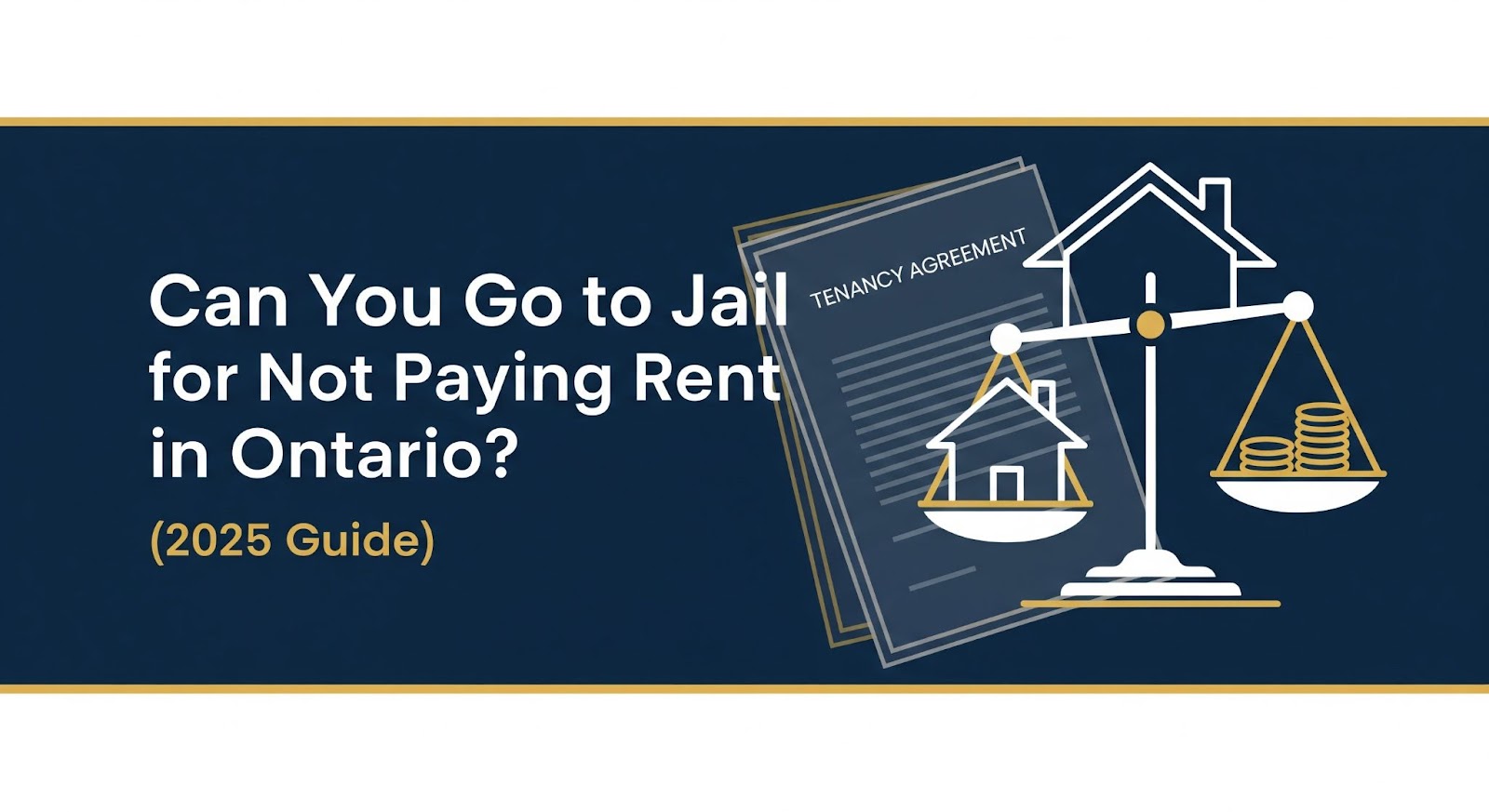


Wondering if missing rent in Ontario could land you behind bars? In 2025, the legal landscape in Canada has shifted slightly due to rising rental costs, housing pressures, and landlord-tenant disputes. With Ontario rent arrears hitting a five-year high and tenant rights evolving, understanding what happens when a tenant stops paying rent in Ontario is more critical than ever.
In this guide, we’ll unpack legal consequences, tenant protections, how to resolve rent disputes, and ultimately answer: can you go to jail for not paying rent in Ontario? Spoiler alert: jail isn’t where this story usually ends—but other serious consequences can follow.
Ontario's Residential Tenancies Act (RTA) outlines the legal framework between landlords and tenants. While not paying rent is considered a breach of agreement, failure to pay rent in Ontario is treated as a civil matter—not a criminal one.
What really happens:
So, can you go to jail for not paying rent in Ontario? No—but ignoring eviction orders or defying court rulings can lead to more severe repercussions.
While jail isn't on the table for just missing payments, failing to comply with court-ordered eviction or threatening a landlord may escalate into legal trouble.
Here’s when things get complicated:
But even then, it’s not the unpaid rent—it’s the defiance of legal orders that causes trouble.
Tenants in Ontario are well-protected under the Residential Tenancies Act. Even if you miss a rent payment, you’re still entitled to:
Tips for tenants in arrears:
If you're behind on rent in Ontario, here's how to protect yourself and stay out of serious trouble:
Consider these options:
Delaying action can make things worse. The LTB acts fast once a claim is filed.
With inflation and rent prices continuing to rise, more tenants are falling behind. But eviction isn’t always the end.
Smart moves to avoid eviction:
Platforms like TenantPay also report rent payments to Equifax, which can boost your credit over time.
Ontario landlords can’t simply change locks or throw out your belongings. They must:
Illegal evictions can result in serious penalties for landlords. If your landlord skips any of these steps, you may file a T5 Tenant Application for unlawful eviction.
You won’t go to jail for missing rent—but ignoring legal steps, dodging eviction orders, or letting things pile up will cause damage to your housing record, financial standing, and peace of mind. In Ontario, the smart move is always communication, legal awareness, and prompt action.
Stay informed. Stay protected. And pay rent smart—before you’re staring down a Sheriff’s notice.
Are you ready to start using your rent payments in your favor?
👉 Book a Demo with TenantPay today

No. They must first issue an N4 notice and then file with the LTB if payment isn’t made within the grace period.
You typically have 14 days (7 days if paid weekly) after receiving a notice to pay or move out.
No. Not paying rent is not a criminal offence in Ontario. It’s a civil matter.
The Sheriff’s Office will enforce the eviction, and continued refusal may lead to legal action for contempt of court.
You may apply for emergency shelter, housing assistance, or reapply to the LTB if the eviction was improper.
Yes. Tools like TenantPay let you pay rent via credit cards and even earn rewards points.
Apply for rent subsidy programs, reach out to legal clinics, and communicate openly with your landlord.
Not by default—but if you use rent reporting services like TenantPay, on-time payments can help build credit.
No. That’s illegal under Ontario law. Utility disconnection is handled through proper legal processes only.